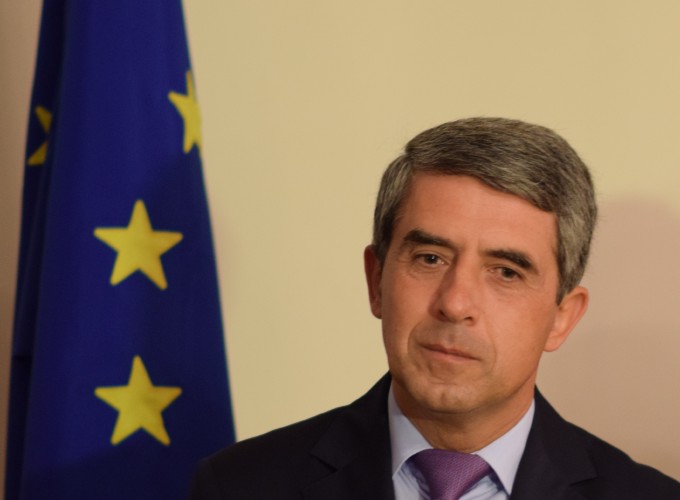Blog post published by presidential-power.com
The Bulgarian president’s power to propose referenda is relatively weak. This, however, did not stop President Plevneliev from seeking a referendum on voting rules in 2014. The opposing Socialist-led majority in parliament eventually defeated his campaign. The president has nevertheless pledged to resume his efforts to trigger a national poll in 2015, following last year’s snap election and the formation of the centre-right coalition government led by PM Borissov’s GERB.
The head of state has a rather marginal involvement in the procedure for the calling of national referenda. While he or she has the right to put forward a proposal for a popular poll, the constitutional power to decide on the holding of a national referendum belongs entirely to the National Assembly (article 84). Under the new referendum law, which limits considerably the subject matters that can be put to a popular vote, one-fifth of all MPs, the government, one-fifth of all municipal councils, or a citizens’ initiative committee that gathered at least 200,000 signatures can also ask the Parliament to consider a referendum proposal. Additionally, a national referendum must be held if so demanded by a petition signed by at least 500,000 citizens (article 10).
If the parliament votes to hold the referendum, then the president must schedule the poll on a date that is not earlier than two months and not later than three months from the parliament’s decision (article 14). To be valid, a referendum also requires a higher turnout than that registered at the previous general election and the support of at least half of the voting participants (article 23). This means that any referendum held before the next general election needs a higher turnout than 51.05 per cent, which was recorded at the October 2014 election. If both conditions are met, then the Parliament must amend the law accordingly. However, if the turnout is lower than this threshold, but higher than 20 per cent of registered voters, then the Parliament only needs to discuss and vote on the referendum matter (articles 23-24).
President Plevneliev has taken different approaches to introduce his two bids for a voting rules referendum. He first brought this proposal into public debate in January 2014, following many months of street protests against the ruling Socialist-led coalition and just a few weeks ahead of a parliamentary vote on a new election law.
In a televised address to the nation, the head of state proposed a referendum on three aspects that were meant to increase the accountability of politicians and restore public trust in political institutions: the direct election of at least some of the 240 MPs who are currently chosen from semi-open party lists, and the introduction of compulsory voting and e-voting. Given the president’s opposition to the government’s new Election Code, which he also vetoed several weeks later, the referendum proposal was interpreted as routine infighting between the government and the head of state.
Shortly after the National Assembly overturned the president’s veto and turned down his referendum proposal, a petition supported by more than 560,000 signatures was brought to the parliament. The petition called for a poll on the same three questions and the signatures had been gathered with support from GERB, the main opposition party. Eventually, the number of valid signatures fell short of the 500,000 threshold that would have made it mandatory for MPs to call a referendum, but was still large enough to require a debate in the parliament. However, given that GERB was the only party to support the president’s call, the citizen initiative was easily rejected by the ruling parties in June 2014.
The president’s second attempt to trigger a voting rules referendum is currently on-going under different circumstances. The October 2014 snap election brought to office a new centre-right coalition government led by GERB, the party that supported president Plevneliev’s candidacy in 2011. This political change allowed the head of state to take a more conciliatory route to re-introduce the referendum on the political agenda.
Voting rules featured as one of the five major themes proposed for discussion during the President’s “Month of Political Consultations” with parliamentary parties. This consensual framework of discussion has allowed the president to re-launch the referendum initiative as an all-party agreement, even if the Socialist party is still opposing vehemently this idea. Thus, addressing the parliament following the conclusion of political talks, President Plevneliev underlined not only his firm intention to propose a new referendum, but also the all-party consensus to have this poll held alongside local elections, which are scheduled for the next October or November.
The details of the procedure to be followed – whether a parliamentary vote on the president’s referendum proposal will suffice or if the route of a citizen initiative needs to be taken again – will be determined in the coming weeks. In the meantime, small parties are also trying to take advantage of this process to initiate further changes that could end the big parties’ monopoly over the initiation of referenda. For example, a bill tabled by the left-wing ABV, one of GERB’s small coalition partners, proposes that 150,000 signatures should be enough for the parliament to consider a referendum initiative, while the number of signatures required for calling a referendum should be reduced to 300,000. Additionally, ABV argues that the participation threshold should be lowered to 40 per cent of the eligible voters and supports the introduction of a mixed-member proportional system.


